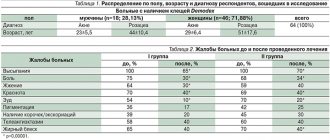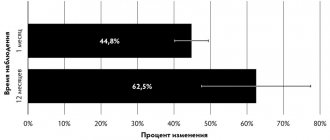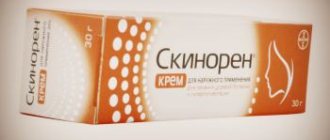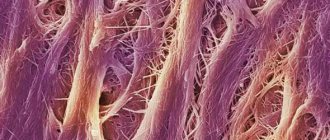Allergy pills are designed to eliminate specific negative symptoms resulting from a reaction to a specific allergen. Many substances can act as irritants:
- plant pollen;
- food products;
- cosmetical tools;
- household chemicals;
- dust;
- pet hair;
- etc.
Allergy medications significantly alleviate the condition of people diagnosed with this pathology, improving their quality of life and allowing them to remain productive.
The principle of action of allergy remedies
The modern pharmacy market is represented by high-quality allergy medications (antihistamines, antihistamines).
There are 3 generations of allergy medications. What are the fundamental differences?
Some of the drugs are classified as homeopathic and hormone-containing drugs. The selection of medications is carried out by an allergist after collecting an anamnesis, external examination of the patient and conducting laboratory diagnostic tests (including allergy tests).
The mechanism of action of antihistamines is to block histamine receptors, which leads to the elimination of negative symptoms.
Reference.
Allergy in medicine is usually called the response of the human immune system to any irritating factor (allergen). Contact with an irritant and/or with many irritants leads to the active state of a biologically active component - histamine (an allergy mediator found in most tissues of the body). This biologically active substance is not dangerous to the body if its activity is not observed. In its active state, histamine leads to disruption of the functions of organs and systems - nervous, muscular, respiratory, digestive, etc.
As a result, the following symptoms may occur:
- Watery eyes, copious discharge from the sinuses.
- Impaired nasal breathing.
- Sneezing, coughing.
- Bronchospasm/breathing disorder.
- Activation of the process of secretion of gastric juice.
- Disturbance of the digestion process and stool (diarrhea).
- Dilatation of blood vessels.
- Edema.
- Skin rashes.
- Headaches, dizziness, fainting.
- Muscle spasms.
- Blood pressure surges.
- Arrhythmia.
- Dry mouth, voice changes.
- Chest/heart pain and more.
Attention!
The condition requires taking special antihistamines that eliminate the negative manifestations of the disease. Experts recommend using modern high-quality medicines to treat allergies of various origins and not experimenting with traditional recipes.
Desensitization
This is the name of the procedure that helps get rid of allergy symptoms if it is impossible to stop the drug. This happens with life-saving essential drugs.
The essence of the method is to gradually increase the dose from the minimum to the required for treatment. At the same time, reactions similar to those observed during allergy vaccination occur in the body. Desensitization techniques exist and are used for insulin, antibiotics and aspirin.
Effective diagnosis and treatment of drug allergies in the multifunctional CELT clinic. New treatment methods, qualified allergists, modern equipment - with CELT specialists it is easy to maintain your health.
Make an appointment through the application or by calling +7 +7 We work every day:
- Monday—Friday: 8.00—20.00
- Saturday: 8.00–18.00
- Sunday is a day off
The nearest metro and MCC stations to the clinic:
- Highway of Enthusiasts or Perovo
- Partisan
- Enthusiast Highway
Driving directions
What is the best allergy medicine?
In medicine there is no concept of “best” and “worst”. The drugs of each group have their own advantages, disadvantages and characteristic features. When prescribing them, many factors are taken into account, including the patient’s age, the presence or absence of concomitant diseases, as well as the degree and type of allergy. What suits one person may not only be of no benefit to another, but even harmful.
Important!
Allergic diseases can always be treated with medications. This can be taking tablets individually (monotherapy) or complex treatment. In this case, the allergy drug is part of a complex treatment that includes drugs belonging to other groups.
Advantages of 2nd generation AGP:
- prolonged action (one dose of 5-10 mg of the active substance is designed for 12-24 hours, in contrast to the 3-5 hours of action of the 1st generation AGP);
- ease of use, only 1 tablet per day
- absence of delayed reaction, impairment of mental activity, drowsiness is also minimized;
- lack of addiction;
- during treatment there is the possibility of increasing the dose and time of administration;
- the possibility of taking the drug for people with pathologies of the gastrointestinal tract, cardiovascular system and glaucoma.
Here you can select drugs based on:
- Cetirizine;
- Ebastina;
- Levocetirizine;
- Desloratadine;
- Fexofenadine.
RAAKI [2] and the American Society of Allergists recommend the use of 1st generation antihistamines only in cases where it is impossible to use 2nd generation antihistamines. The most prominent representative of the latest generation of antihistamines is cetirizine. In terms of sales volume in the pharmacological market in Russia, as well as in terms of prescription among specialists, Cetrizine No. 1 is the drug Cetrin®[3].
Complications of allergies in children
In the absence of competent measures, diseases and conditions that are difficult to treat may develop. Many of them significantly worsen the child’s health, reduce his quality of life and often lead to disability, these are:
- Chronic rhinitis.
- Persistent headaches.
- Deterioration of memory and concentration.
- Autoimmune disorders.
- Bronchial asthma, anaphylactic shock or asphyxia.
Allergies in children of any age require timely contact with a qualified specialist and constant monitoring. Only an experienced pediatric allergist can prescribe adequate treatment and provide competent medical supervision.
Tavegil: who is it suitable for?
Tavegil belongs to the class of modern antiallergic drugs. It gives the first therapeutic effect within a short time after entering the gastrointestinal tract. Indications for the use of Tavegil may include:
- hay fever;
- eczema;
- itchy dermatitis, including urticaria;
- iridocyclitis;
- rhinitis of allergic etiology.
However, this drug should not be used with the following contraindications:
- asthma;
- any pathologies of the lungs and bronchioles;
- pyloric stenosis;
- glaucoma;
- thyrotoxicosis;
- hypertension;
- prostatic hyperplasia.
The use of Tavegil is also contraindicated for children under 6 years of age and pregnant women.
Remedies for allergies during pregnancy
Negative signs of allergies are not just the appearance of unpleasant symptoms, but a high probability of developing autoimmune disorders. This factor should be taken into account by women carrying a child. Therefore, if characteristic symptoms of the disease appear, you should consult a doctor and start taking the medications prescribed by the specialist.
Important!
It is prohibited to buy or take any
allergy medications
without consulting a doctor and undergoing examinations. Self-medication is not acceptable! This is especially true for pregnant women. It should also be taken into account that many drugs are prohibited during pregnancy.
Properly selected, high-quality, modern medicines cannot cause serious harm to the mother’s body and do not affect the development of the fetus. Such drugs, if necessary, are also prescribed to breastfeeding women.
Bibliography
- [1] Sergeev Yu.V. Allergy to materials used in orthopedic dentistry [Text] / Yu.V. Sergeev, T.P. Guseva // Attending physician. – 2004 – No. 3. – 38-41 s.
- [2] Allergology. Clinical recommendations developed by the RAACI Working Group / ed. R. M. Khaitova. – M.: Farmarus Print Media, 2013. – p. 126 p.
- [3] Agafonova V.A. Study of antihistamines of 3 generations: materials of the V student international correspondence scientific and practical conference “Scientific community of students of the 21st century. Natural Sciences” / V.A. Agafonova, Yudicheva K.V. – M.: publishing house Siberian Association of Consultants, 2012. – 322 p.
- [4] Korsunskaya I.M. Skin itching: what you should think about / I.M. Korsunskaya, E.V. Dvoryankova, K.T. Plieva [etc.] // Effective pharmacotherapy. – 2015. – No. 45. – 14-18 s.
- [5] Instructions for use of the medicinal product for medical use Cetrin®. – Registration number: P N013283/01.
How to choose allergy medications?
Now there are a lot of different antihistamines. We offer both expensive original medicines and their more affordable popular analogues. When purchasing, you should follow the recommendations of your doctor and do not replace your own prescribed medication with a similar drug.
Selecting a medicine for allergies is the prerogative of an allergist. A specialist is able to accurately identify the allergen, identify the type and degree of the disease, and, based on all the data, select the best option for successfully blocking histamine receptors.
The main rule to follow
- this is an appeal to a trusted drug supplier. Only in this case can you avoid counterfeiting and not overpay for goods of dubious origin. The network of social pharmacies Stolichki guarantees the authenticity of medicines and offers a wide range of medicines at affordable prices.
Our doctors
Shundeva Oksana Veniaminovna
Allergist, doctor of the highest category
Experience 39 years
Make an appointment
Orlova Tatyana Vladimirovna
Doctor - allergist-immunologist, pulmonologist, doctor of the highest category
Experience 38 years
Make an appointment
The most common allergens
Products that most often cause food allergies:
- eggs;
- nuts (hazelnuts, almonds, peanuts, etc.);
- fish;
- citrus fruits (oranges, tangerines, etc.);
- berries (strawberries, wild strawberries, etc.);
- chocolate;
- milk;
- legumes (soybeans, beans, peas, etc.).
- nutritional supplements.
Allergens found in some foods may be similar to pollen allergens. This is called cross allergy. For example, wormwood pollen is a cross-allergen for peppers, carrots, mustard, bananas, and citrus fruits. This means that a patient with hay fever may also have food allergies.
A few words about our smaller brothers
It turns out that animals also suffer from food allergens. For example, food allergies in cats occur regardless of gender, breed and age. The main signs are itchy skin, hair loss, scratching on the skin.
Most often, food allergies in cats occur to soy, gluten, seafood, beef, dairy products, and lamb.
In its manifestations, food allergies in purebred dogs are no different from food allergies in dogs – “ mongrels”:
- itching, pimples on the scalp, abdomen, paws;
- discharge from the eyes, nose, ears.
But let's go back to the representatives of the species Homo Sapiens, or, more simply, to people.
It is important to know!
- Thanks to comprehensive treatment of food allergies, rapid recovery occurs;
- in the future, the patient should avoid foods that cause an allergic reaction;
- if your child has a food allergy, be sure to notify the preschool or school staff about this, and, if possible, document this fact;
- make sure your child wears a special allergy bracelet;
- If your child has previously had an acute allergic reaction, you should always have a first aid kit with an antihistamine and epinephrine (adrenaline). At the first sign of an acute reaction, it is necessary to give the child these medications and call an ambulance.
Be healthy!
What is an allergy to household chemicals and where does it come from?
Nowadays, not a single housewife can do without chemical helpers to restore order in the house.
Washing clothes, washing windows and furniture, cleaning carpets, stoves, toilets and bathrooms - for all this there is a bottle with a mixture of acid, alkali, bleaches, foaming agents, dyes and flavors. Of course, the benefits of these products are great; they effectively remove dirt and disinfect the surface, but at the same time they can harm both those who are cleaning and those who are simply in the room. After all, most of the products contain quite toxic volatile compounds that easily get on the skin and mucous membranes, irritating them and causing allergies. Strictly speaking, we are more often talking about toxic reactions, which are easy to compare with allergic ones, because the manifestations are similar.
Unfortunately, the frequency of allergic reactions to household chemicals is actively growing these days in parallel with the development of chemical production. New chemical compounds are constantly emerging and are being used to create more and more effective cleaning and detergent products.
The impact of these drugs on the human body simply does not have time to be studied. And the mechanism of development of an allergic reaction at the moment, despite the impressive progress of modern medicine, has not been fully disclosed. Manufacturers of household chemicals usually limit themselves to a series of simple experiments on animals or a small group of volunteers - and a new brand of household cleaning products appears on store shelves. And no one knows for sure what reaction consumers’ bodies will respond to this brand (and after all, every person is unique!).
Prevention
The patient’s main task is to completely eliminate dangerous foods from his menu! With this reasonable approach, the risk of nutritional (food) allergies will be minimized.
Doctors recommend keeping a food diary, which makes it easier to detect the “enemy.” In it, parents should write down everything that their child eats during the day, or everything that the nursing mother ate. Along with the food, the baby’s condition is noted in the diary.
A big mistake would be to refuse breastfeeding due to a nutritional allergy in a child - after all, the unique properties of mother's milk will allow you to quickly cope with the problem. But a nursing mother must adhere to a strict diet, avoiding foods from the “allergenic list.”
In addition, it would be useful to strengthen the immune system, prevent dysbiosis, and timely treatment of exacerbations of chronic diseases or acute viral infections.
Do not forget that food allergies often originate in childhood. For example, a food allergy in a 2-year-old child may eventually manifest itself in adulthood as Quincke's edema.
Alcoholic beverages aggravate food allergy symptoms in adults, so it is advisable to avoid alcohol.











